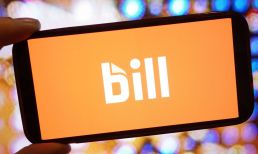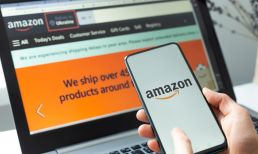Minsok Pak, Target’s executive vice president and chief strategy and innovation officer, said in the announcement that joining forces with METRO benefits both Target and the startups in the program. “Target’s portfolio of accelerator programs allows us to test a broad set of external innovations that can further differentiate and enhance our guest experience. The partnership with METRO not only extends our reach globally to bring new ideas to Target, but it further helps startups understand how to scale.”
Startups in the program will receive a maximum initial investment of $120,000, according to the company, along with “intensive mentorship” from leaders of both Target and METRO as well as alumni of Techstars. They will also visit the headquarters of Target in Minnesota and METRO’s Accelerator headquarters in Berlin. In addition, the program will provide startups with learning sessions to help them craft a pitch and take a concept to market, along with a demo day, when startups will pitch their businesses to officials from Target, Techstars and METRO, among others.
We’d love to be your preferred source for news.
Please add us to your preferred sources list so our news, data and interviews show up in your feed. Thanks!
Target has tapped into the expertise of startups in its Target + Techstars programming: The retailer noted that it has “run tests or pilots” with over half of 30 participating startups, and is “actively working” with more than a dozen startups. This is one of a few of the retailer’s accelerator programs, which also include Target Incubator, Target Takeoff and the Target Accelerator Program in Bangalore, India.
The Startup Accelerator Landscape
Beyond Target and METRO, Farfetch was debuting its own accelerator called Dream Assembly. The company was reportedly creating a myriad of services that spanned from mobile payments to tracking consumer behavior across multiple locations. The accelerator was to take 10 startups through a program that would last 12 weeks to be hosted in Lisbon. Burberry and VC firm 500 Startups were reportedly among the partners in the program.
Advertisement: Scroll to Continue
Farfetch Chief Strategy Officer Stephanie Phair described the program to The Business of Fashion: “We’re developing an ecosystem. Think about Farfetch as the platform for the luxury industry.” (The outlet also noted that the retailer was seeking to build an “operating system” for retail with its Store of The Future.) According to prior reports, Farfetch has tied its technology to in-house offerings and has been turning to third parties for new apps, but the accelerator could hasten that process.
In another case of a retailer entering the world of accelerators, LVMH said in April that it would start an accelerator, with the goal of bringing 50 startups a year to the Paris-based “Station F” campus. “This initiative will drive business acceleration between LVMH’s Maisons and startups to invent innovative new products and services for the luxury market,” the company said in a press release at the time. LVMH’s accelerator also comes with a place for startups: The company noted that startups could use 89 workstations in an LVMH space of 220 square meters.
Like the Target accelerator, LVMH said it would provide support and coaching from experts. At the same time, it planned to provide startups with workshops and networking sessions. The company also said that pitch sessions would be “regularly organized to let them present the evolution of their solutions.” And LVMH noted that the program differentiates itself from others by involving entrepreneurs who are working on projects related to different business groups, such as perfumes and cosmetics and fashion and leather goods, among others.
What new retail inventions will these accelerators bring? That remains to be seen, but these moves suggest that retailers are starting to see accelerators as a conduit to innovation.

 Add as Preferred Source
Add as Preferred Source



